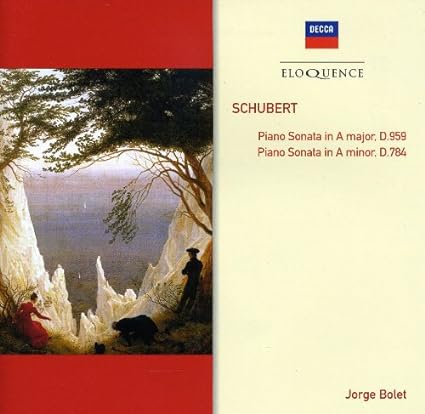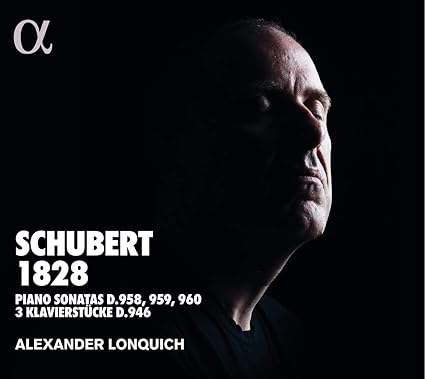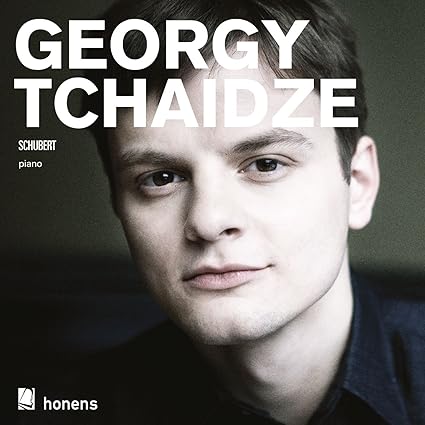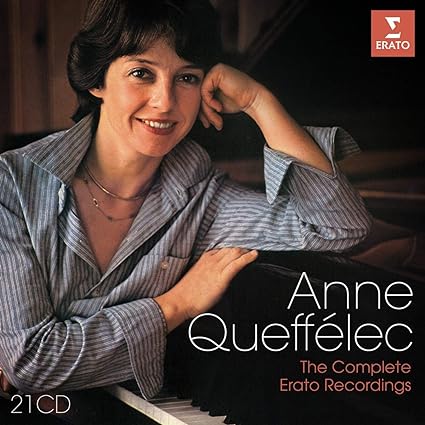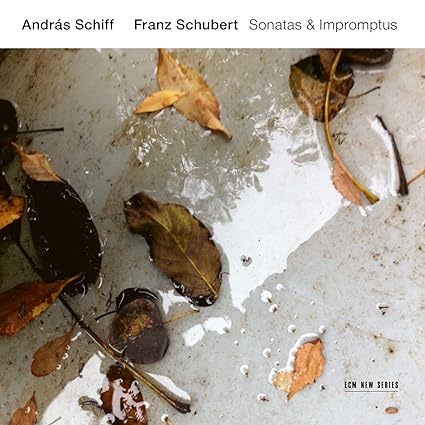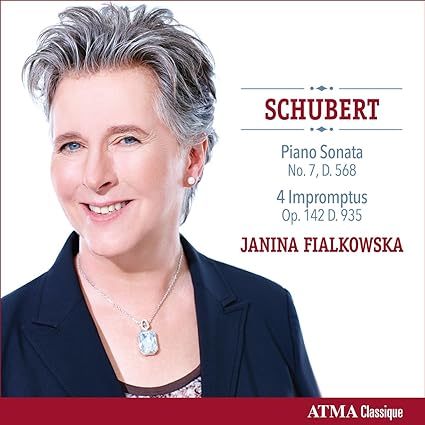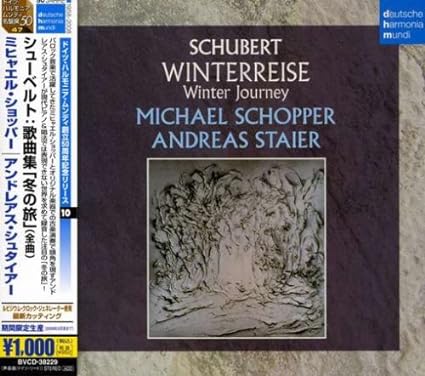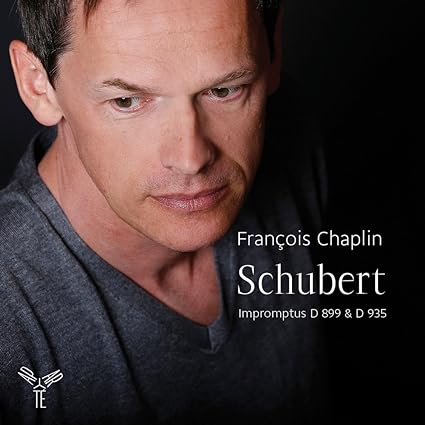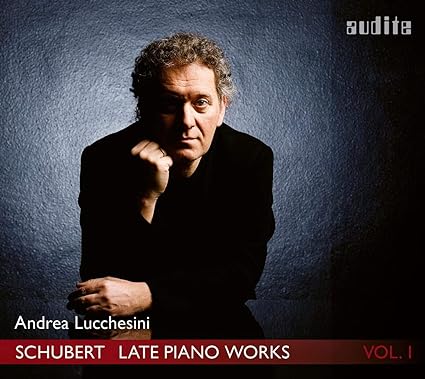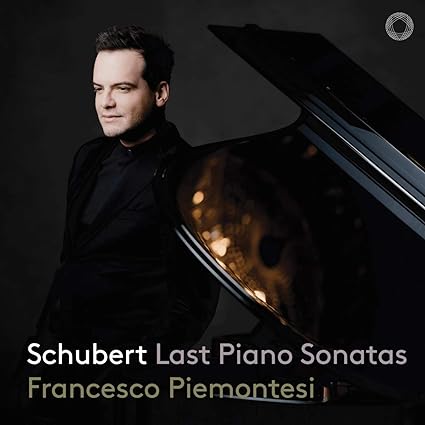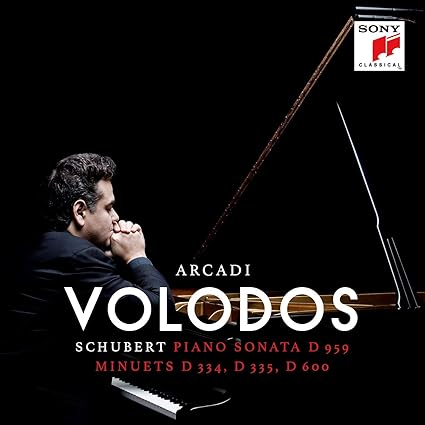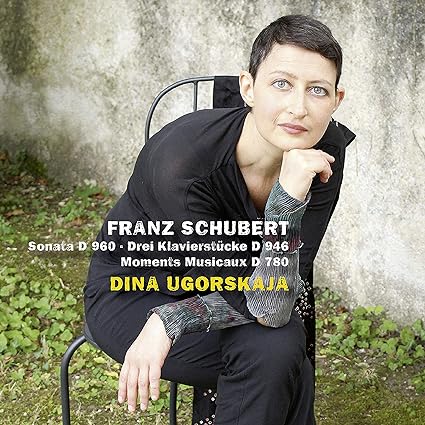Ending the latest batch of Schubert recordings with the one I've owned the longest. I'm a big fan of Alexander Lonquich, so I was predisposed to like this set. I also happen to like his older Schubert recordings that I've listened to via YouTube, so all signs pointed to a fine twofer. Lonquich handily exceeded expectations and delivered one of my purchases of 2018. I decided, after multiple most enjoyable listens, to scribble about it.
I generally cover pieces as they are presented on disc, but here I'm starting with highest highlight of the set, one of the greatest recordings of D959 I've heard. Possibly the greatest. Lonquich starts with loud and powerful forte chords, which also sound broad of tempo and large of scale. He brings the movement in at 17'50", so energized, speedy drama is not what the playing is all about. It's more about clean articulation, supreme clarity, wide-ranging dynamics, with incredibly fine differentiation at all levels - why shouldn't
p have at least ten fluidly variably levels? It's also about a second theme that while highly lyrical, sort of sounds deconstructed, a gorgeous and searching musical breakdown of each and every constituent part. Lonquich, as in all his recordings, plays with strongly individual ideas. He doesn't hold back on personal rubato or accents, not at all. Indeed, he weaves them seamlessly into the musical fabric throughout. Nary a bar goes by without him inserting his personality. The playing is beautiful or fierce (or an approximation of fierce) where it should be. The Andantino starts off daringly slow, with Lonquich playing the melody in a largely jagged staccato style, especially with the right hand. The awesome clarity sounds awesomer when he obviously desynchronizes the hands, with continuous, miniature melodic blocks the occasional result. Lonquich fires things up in the middle section, thundering out playing. The end of the section and transition again slows things down, with dynamic and tempo reductions that heighten the drama that preceded it. The repeat of the first theme is a bit quicker and more forlorn than the first presentation of the material. Nice. The Scherzo continues on an intriguing mix of jagged playing and lyricism that works quite well. The middle section is especially effective in its striking dynamic shifts. In the Rondo, Lonquich plays with a more unaffected lyricism, though he can't help from deploying rubato and personal (micro-) tweaks to note values here, there, and everywhere. The movement sounds generally lighter in tone and more fluid than the rest of the sonata. That's not to write that he neglects intensity in the middle section, because he plays with ample oomph. While I very often prefer my Schubert on the more purely lyrical side overall, with shades of darkness pervading the late sonatas, in particular, Lonquich's approach is unique and backed by exceptionally fine playing. There are, of course, many fine recordings of this work, but I don't know if I can say any are better. I would be tempted to say this is a potential long-term reference for modern, SOTA sound sets, but Arcadi Volodos is out there, performing this very sonata. If he lays down a studio version, it may set a new and different standard. Until that day hopefully arrives (hopefully very soon), this will be my go-to for current versions.
Moving back to D958, Lonquich launches the opening Allegro with potent, quasi-mini-orchestral chords and a perfectly judged tempo, evoking a bit of drive and oomph. It's entirely and eminently satisfying. But it's the slow second theme and the transitions where the magic happens. Yes, there may be even better executed scales out there, though I can't think of any. This is how to transition. And then the slow music is very slow, filled with micro-pauses and personal note value changes, and replete with so many dynamic gradations that one almost wants to measure them. (Really, the mezzo-piano to mezzo-forte range is superbly rendered, with even shadings shaded.) None of this would really matter much if it were not for the lyrical and tonal beauty married to an almost fantastic sound world. It is entirely possible to find the playing too mannered, but mannerism makes the music here. The Adagio ends up mixing a slow, somber, contemplative sound with passages of no little intensity. A neat little trick that Lonquich uses involves desynchronizing hands when playing some ascending volume sforzandi. It lends a certain controlled frenzy feel to things. Lonquich's almost crazy clarity also lends a simultaneously controlled and unmoored feel to the music. The Menuetto might almost be considered too mannered. The outer Allegro sections are just nifty in terms of energy and drive, but the trio is laden with so much rubato that some might find it distracting. That written, the terraced dynamics between left and right hand, and that awesome clarity, offer unique rewards all their own. The Allegro possesses more forward drive and rhythmic snap than the preceding movement, but what continues to stand out is the clarity and the dynamic control. Here, it's the swelling fortes, anchored by beefy but pristine left hand playing, that really catch the ear, at least until some of the gentle quiet right hand playing manages to dominate, despite its gentleness. The playing doesn't flow in the best, most lyrical way, but it doesn't matter a whit.
In D960, Lonquich goes for the super-long Molto moderato approach, taking just shy of twenty-four minutes to finish it. He keeps the pulse pretty steady, though he can't help but throw in personal rubato and occasionally, and most effectively, accent certain bass notes. The bass trills are nearly exaggerated, and some silences and note values most definitely are; those who dislike agogics for interpretive effect will find much to dislike. Me, I like, especially if it's well done. That written, the movement often seems to lack a core, or to possess the emotional weight of some readings; it often seems to be abount momentary effect. Typically, I prefer dark 'n' dismal takes on the sonata, with a first movement weighting, but in some instances, as here, that doesn't matter as much. It matters much less when the Andante becomes the center of the work, as it most certainly does in this recording. Again, Lonquich does not go for a particularly fluid, lyrical style in the outer sections, instead relying on agogics and rubato to create a dark, introspective soundworld, made the more so when he plays softly. It's really quite masterful. The middle section stays on the slow side, but the insistent left hand playing and darkly tuneful right hand playing offers a contrast from the music before and after. And in the return of the opening material, Lonquich adds some additional dynamic contrast, this time more on the louder end, to super dramatic effect. He opens the Scherzo lightly and gently, and rapidly increases volume and tension to just right levels, and closes with a nearly conventional Allegro ma non troppo. He still finds time to vary dynamics nicely, especially on the pianissimo to piano end of the spectrum, and he plays with more rhythmic steadiness much of the time. The playing is largely shorn of emotional baggage, as is delivered most handsomely.
The twofer ends with D946. Lonquich changes approaches here, going for a straight-forward quick, potent opening before backing way off for a slow, darker middle section, which is prone to some nicely timed and perfectly executed forte outbursts. The transition back to the first theme is masterful, almost to a Karsian level. Quasi-Karsian is the slow second piece. Lonquich does play with admirable tonal refinement, as well as some more nicely accented bass notes, but it's earthbound compared to Kars. When compared to most other pianists, Lonquich's take is extra-spiffy, though. Relatively best of all is the third piece. Smaller and shorter than its predecessors, in many full sets, it seems like a lesser composition, but Lonquich lavishes the same attention on all aspects of the playing, making sure to hammer out the middle section to great effect.
Alexander Lonquich is one of those pianists I just seem to enjoy all the more for his individual, idiosyncratic interpretations, backed up by stellar playing. This latest Schubert twofer does not disappoint. Now, if only Warner will see fit to reissue his 90s recordings in a handy-dandy box one day.
Amazon UK link:
https://www.amazon.co.uk/dp/B07GW2LWSS/?tag=pinkfishmedia-21
